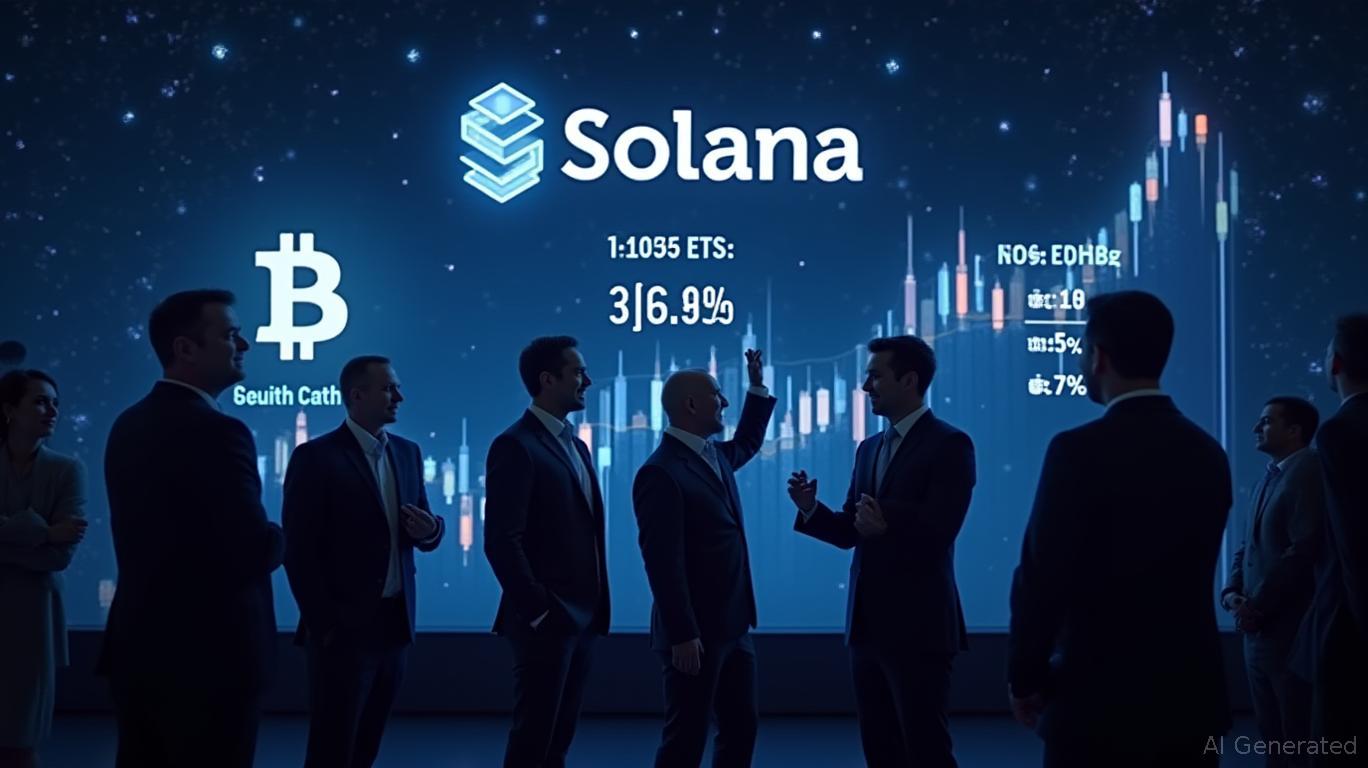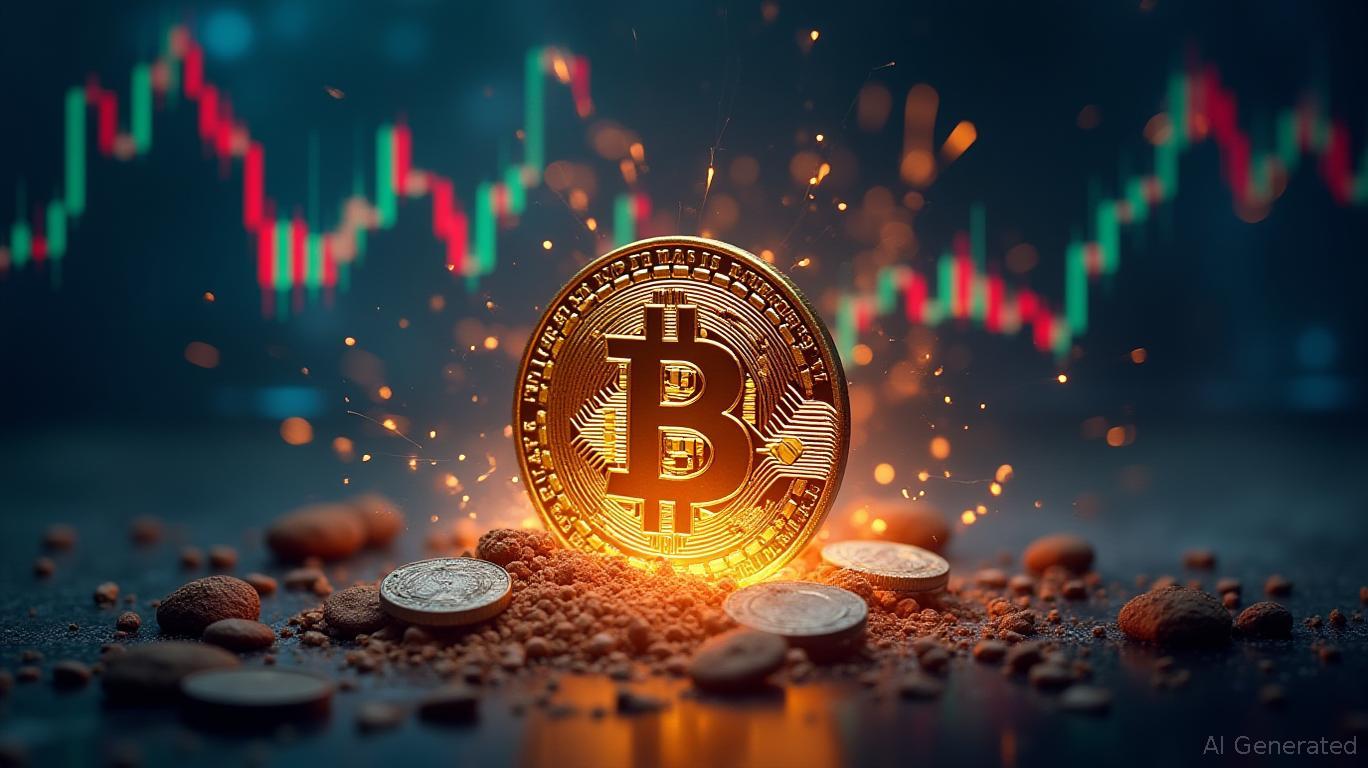Tokenized Deposits and Stablecoins: Competing for the Future of Blockchain-Based Finance
- Omid Malekan criticizes tokenized deposits for limited flexibility and interoperability compared to stablecoins, which offer cross-platform utility and 1:1 reserves. - Standard Chartered forecasts a $2 trillion RWA market by 2028, driven by DeFi growth and stablecoin liquidity, with Ethereum dominating due to its reliability and ecosystem. - Regulatory clarity, especially in the U.S., remains a critical challenge, with Standard Chartered warning of potential delays before 2026 midterm elections. - The de
Omid Malekan, an adjunct professor at Columbia Business School, expresses doubts about tokenized bank deposits, claiming they do not offer the same adaptability or technical benefits as stablecoins, as reported by
Malekan argues that tokenized deposits—which are essentially bank account balances recorded on a blockchain—are more limited in function than stablecoins. He compares them to "a checking account that only allows you to write checks to others at the same bank," highlighting their restricted use for transactions outside their own network, as per Cointelegraph. In contrast, stablecoins are fully backed and overcollateralized, providing enhanced security and flexibility. They can be moved between various crypto platforms, integrated into decentralized apps, and utilized in lending protocols—capabilities that tokenized deposits lack due to know-your-customer (KYC) requirements and restricted access.

In contrast, Standard Chartered foresees tokenized RWAs playing a pivotal role, projecting a dramatic rise in market value from $35 billion today to $2 trillion by 2028—a 5,600% increase. The bank credits this surge to the growing stablecoin sector, which has brought $300 billion in on-chain liquidity and promoted wider DeFi adoption. Geoffrey Kendrick, the bank’s head of digital assets research, believes stablecoins have paved the way for the tokenization of traditional assets like money-market funds, stocks, and real estate. He estimates $750 billion each in tokenized money-market funds and listed equities, with further expansion in funds, commodities, and corporate bonds, as mentioned by
According to
However, obstacles persist. Malekan’s concerns highlight the risks of tokenized deposits, such as their dependence on fractional reserves and limited ability to interact with other systems. At the same time, Standard Chartered warned that ongoing regulatory ambiguity—especially in the U.S.—could slow progress if clearer rules are not established before the 2026 midterm elections, as referenced by
This ongoing discussion mirrors larger issues within the financial sector. While Malekan sees tokenized deposits as less effective than stablecoins, Standard Chartered and other advocates believe RWAs can connect traditional finance with blockchain advancements. As DeFi moves from a specialized area to mainstream use, the competition to shape the future of financial infrastructure is heating up, according to
Disclaimer: The content of this article solely reflects the author's opinion and does not represent the platform in any capacity. This article is not intended to serve as a reference for making investment decisions.
You may also like
Bitcoin Updates: Swiss Crypto Lending Offers 14% Returns Alongside Bank-Backed Insurance
- Swiss crypto lender Fulcrum offers 14% APR on stablecoins with Lloyd's insurance and FINMA regulation. - Platform uses 50% LTV over-collateralization and institutional-grade security to mitigate market risks. - Targets inflation-hedging investors by bridging traditional finance gaps with insured crypto yields. - Competes with alternatives like Bitget's zero-interest loans but emphasizes regulatory compliance and capital preservation.

Bitcoin News Update: Analyst Highlights How MSTR's Convertible Bonds Prevent Forced Bitcoin Sales
- MSTR's convertible debt structure allows debt repayment via cash, stock, or both, avoiding Bitcoin sales during market downturns. - The company raised €350M through a 10% dividend-bearing euro-denominated preferred stock offering to fund Bitcoin purchases. - Q3 results showed $3.9B operating income from Bitcoin gains, driving a 7.6% stock surge to $273.68 post-earnings. - Risks persist if Bitcoin fails to rally in 2028, potentially forcing partial liquidation amid $1.01B 2027 debt obligations. - MSTR hol

Solana News Today: Solana ETFs Surpass Bitcoin as Staking Returns Attract Institutional Investments
- U.S. spot Solana ETFs (BSOL/GSOL) attracted $199M in 4 days, outperforming Bitcoin/Ethereum ETF outflows. - 7% staking yields drive institutional inflows as investors rotate capital from major crypto assets. - Despite ETF success, SOL price fell below key support levels, raising concerns about $120 price floor. - Strategic staking and treasury purchases boosted Solana's institutional appeal, with $397M in staked assets. - Market remains cautious as ETF competition intensifies, with Bitwise's BSOL outpaci

Bitcoin News Today: Bitcoin’s Fourth Quarter Surge: Impact of Trade Disputes, Stronger Dollar, and Evolving Global Economic Strategies
- Bitcoin fell nearly 15% in October 2024, its worst quarterly start since 2022, driven by U.S.-China trade tensions, dollar strength, and macroeconomic caution. - A 100% U.S. tariff on Chinese imports and Fed rate-cut delays exacerbated selloffs, triggering $1.3B in liquidations during a flash crash below $103,000. - Key support levels at $107,000 and $101,150 face retests as traders warn of further declines, with market cap dropping below $3.6T amid fragile liquidity. - Wintermute denied Binance lawsuit
